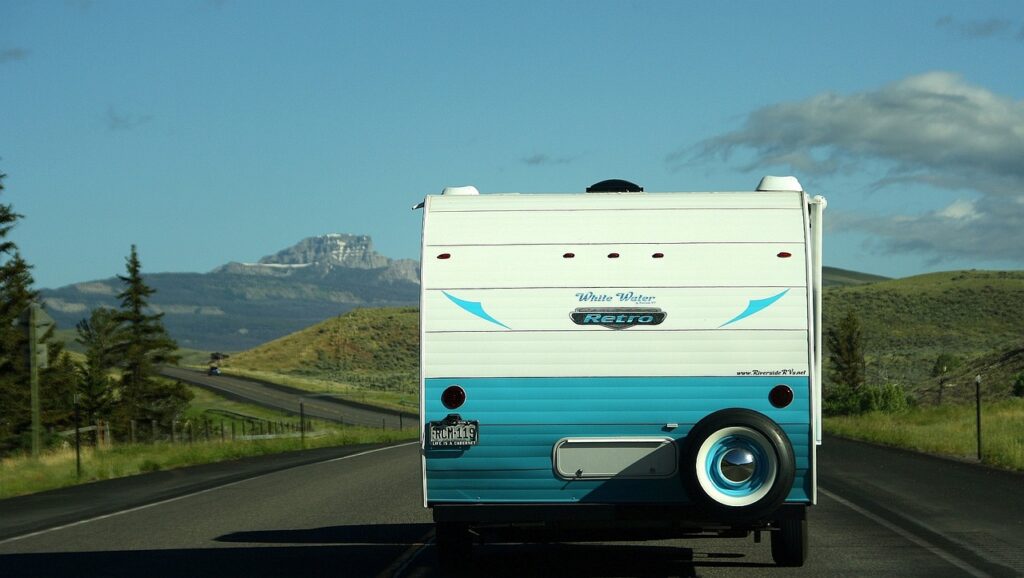Summer is the perfect time for a road trip! Some travelers like to have a detailed plan and confirmed reservations, while others like to be a little more spontaneous and travel adventurously. Whether you have a planned-out approach or a free-spirited attitude toward road trips, you should never leave without having prepared your vehicle for the journey.

Don’t let car trouble steal the fun and relaxation of your summer road trip. Be prepared for a worry-free trip by considering these vehicle checks:
Thoroughly Check Your Fluids
Your car relies on a number of different types of fluids to run smoothly. Before leaving for a trip, it is a good idea to check:
- Engine Oil – Lubricates the engine and keeps it running smoothly
- Coolant – prevents your engine from overheating
- Transmission Fluid – proper levels ensure smooth shifting and extend the life of your transmission
- Brake Fluid – required for the proper functioning of your brakes
- Power Steering Fluid – essential for smooth and easy steering
Confirm that all fluids are at the proper levels and that they are in good condition. If any fluids are low or dirty, have them topped off or replaced by a professional.
Inspect Your Tires
Safe travel is where the rubber meets the road… literally. Check your tires to make sure they are in optimal condition to deliver proper performance and handling:
- Tread Depth – proper tread depth provides better grip and handling
- Tire Pressure – correctly inflated tires improve fuel efficiency and safety
- Tire Condition – cracks, bulges, or uneven wear can be a sign of potential problems
- Spare Tire – don’t overlook checking its condition, and make sure you have a jack and lug wrench
.Check Your Battery
A failing battery has the potential to ruin your trip. Consider these battery related items:
- Signs of Corrosion – Corrosion on terminals or other areas can affect performance
- Battery Age – if the battery is over three years old, consider having it tested
- Jumper Cables – always travel with a set of jumper cables in case you have battery problems on the road
Check Your Brakes
Dependable functioning of your vehicle’s braking system is essential for safety. Always pay attention to signs of trouble like squeaking or grinding noises when braking, or unusual sensations or vibrations. Before a trip check these brake system components:
- Brake Pads – worn brake pads can reduce braking efficiency
- Brake Rotors – warped or damaged rotors can affect braking performance
- Brake Fluid – make sure brake fluid is at the proper level and isn’t contaminated
Check Your Lights and Signals
Properly functioning lights and signals are essential for safety. Test your all of your system lights including:
- Headlights
- Taillights
- Turn signals
- Brake lights
Have any burnt-out bulbs replaced to ensure you can see and be seen on the road.
Inspect Your Belts and Hoses
Confirming that your belts and hoses are in good condition is important for your vehicle’s safe operation.
- Have Belts Checked – signs of fraying, glazing, or wear may indicate replacement is necessary
- Inspect Hoses – leaking, cracked, bulging, or damaged hoses should be replaced to prevent engine overheating
Additional Summer Travel Tips
Even with the best preparations, emergencies can happen on summer road trips. Be ready with a kit with a car kit that includes items like flashlights, extra batteries, portable cell phone chargers, tire repair kit and inflator, non-perishable snacks, bottled water, etc.
Planning your summer road trip route ahead of time can save you from unexpected surprises. Most drivers rely on cell phone GPS for guidance, but a good old-fashioned roadmap could be invaluable in the event of the dreaded ‘lost signal’ situation.
Taking the time to prepare your vehicle before a summer road trip can save you from unexpected breakdowns and ensure a fun, stress-free journey. If you’re unsure about any of the vehicle checks listed above, don’t hesitate to visit your local trusted auto service technician.





 Drivers know that winter weather and dropping temperatures mean that your vehicle will require additional care to assure it runs smoothly and dependably. What many drivers may not realize is that scorching summer temperatures can also take a serious toll on your car. To avoid the risk of being stranded, motorists should keep in mind that extreme heat means that vehicles need some extra attention.
Drivers know that winter weather and dropping temperatures mean that your vehicle will require additional care to assure it runs smoothly and dependably. What many drivers may not realize is that scorching summer temperatures can also take a serious toll on your car. To avoid the risk of being stranded, motorists should keep in mind that extreme heat means that vehicles need some extra attention. creates a substantial amount of heat. To manage that heat, your vehicle has its own cooling system that assures your engine stays cool enough to function properly. Engine overheating is a dangerous situation that can quickly put you and your passengers in peril, and put your car at risk for expensive damage. When the engine exceeds 230 degrees Fahrenheit, is overheated, and at temperatures above 245 degrees Fahrenheit, engine damage may result. As the heat increases, the different rates of thermal expansion cause metal to distort.
creates a substantial amount of heat. To manage that heat, your vehicle has its own cooling system that assures your engine stays cool enough to function properly. Engine overheating is a dangerous situation that can quickly put you and your passengers in peril, and put your car at risk for expensive damage. When the engine exceeds 230 degrees Fahrenheit, is overheated, and at temperatures above 245 degrees Fahrenheit, engine damage may result. As the heat increases, the different rates of thermal expansion cause metal to distort.